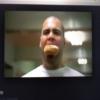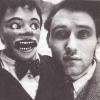| The NHS 21:10 - Jan 21 with 15774 views | exiledclaseboy |
I've debated long and hard about posting this but I decided it was worth it as we've seen many threads and posts decrying the NHS and I wanted to redress the balance.
On 12 December my wife went for a routine examination which revealed "something nasty" in her bowel. No symptoms at all, simply a follow up from an unrelated problem from about a month before. Biopsies were taken and we were called back a few days before Christmas to have it confirmed that she has bowel cancer. She had a scan a few days after Christmas to check the cancer hadn't spread (thankfully it hadn't) and that was confirmed last Monday. Yesterday she had the operation to remove the tumour. She's now recovering in Morriston Hospital.
So from initial suspicion of something sinister on 12 December to probably life saving operation five weeks later on 20 January. We haven't had to worry about money and the care at every stage so far has been superb.
I realise that we can all only speak from our personal experiences and that not everyone's will mirror our own. But there is ours. Thank you, NHS. |  |
| |  |
| The NHS on 23:22 - Jan 22 with 1749 views | Swanseajill |
| The NHS on 20:30 - Jan 22 by exiledclaseboy |
We found out three days after we moved house. It's been a hell of a few months with one thing and another. |
May the rest of the year be healthy and happy in your new home Clasey, while taking care of the ones you love most. |  | |  |
| The NHS on 06:08 - Jan 24 with 1663 views | squarebear |
A cynic might argue that yesterday the NHS finally got what they'd been earnestly striving for over the past six months.
Some time last summer an ambulance was called to attend to an incident where an elderly lady had tripped and fallen over a high kerb. Despite her seemingly only suffering cuts and bruises the paramedics wanted to get her thoroughly checked, so whisked her off to casualty.
Once there she was assessed, x-rayed, and it was determined that there were no serious injuries. However the medical staff were concerned that she was exhibiting signs of confusion and as she lived alone they opted to keep her in overnight for her own protection.
She, as many independent people would've done, found this very frustrating. But the hospital were taking her welfare seriously.
The following morning she was moved to an assessment ward. She asked if someone could pass her a walker so she could move around the ward, but hospital wards are busy places. If someone is shuffling around they might be at risk of falling/colliding and causing further injury. The nurses kept her in bed for her own protection.
She was then assigned to a ward. By now, frustrated by her enforced immobility, her mood had begun to darken. The hospital had deemed she needed 24 hour care as she was exhibiting signs of dementia. Therefore she couldn't be discharged as she might not be safe. Alternative living accommodation needed to be found.
This was a crucial turning point in this old lady's life. A Pandora's Box of red tape was flung open as an array of visitors began turning up at her bedside asking questions, assessing her, assessing her needs.
She, like most of us, just wanted to go home; or at least wanted her walker so she could go to the damned loo by herself. But the hospital staff were stretched. They'd bring her a commode.
"Nurse. Please can I have my walker?". "I'll bring you it in a minute, lovey". It never came.
Within a couple of weeks of confinement to bed this old lady's mobility had been stripped from her. She suffered a series of infections and was treated each time with antibiotics.
She appeared thinner. A check of her notes revealed she was refusing her food. But the hospital were feeding her meat despite the word "VEGETARIAN" in large letters above her bed.
Weeks passed. Soon instead of a commode they were bringing her a bedpan. Embarrassed by the indignity, she drank less, and so began to dehydrate.
Then suddenly she seemed to be sleeping more. It seemed as if she was being drugged. But a check of her notes revealed nothing untoward. In fact, looking around this ward of grey-haired ladies, they all appeared drugged. A doctor explained it as "hypo active delirium".
Thank goodness for Google.
Roughly one in four elderly patients enter hospital exhibiting symptoms of hypo active delirium. One in two elderly patients develop/exhibit these symptoms during their stay. This results in hospital wards across the UK being laden with bed-blockers, consuming vast amounts of NHS resources.
This old lady was by this stage wasting away. The doctor, the same one who'd insisted months earlier that he was looking after her best interests, now sought our approval to no longer treat her for infection, suggesting it would be a kindness to let nature take its course.
Looking at the shell of a human being lying in the bed, confused, wasting away, utterly immobile, we consented.
One Sunday night the hospital rang "There's been a serious development". We asked for details but this was declined due to "Patient confidentiality". We live hours away so rushed to the hospital and were shown to a private ward where a terribly frail, gaunt old lady lay sleeping. My wife, confused, walked back out, "That's not her". "I'm afraid it is", I nodded.
But the once-feisty old lady fought off the infection. Though it was swiftly followed by another. By now we'd agreed to a "DNR". This all seemed a long way from her having cut her knee. But as good as the NHS is in parts, when you're caught in its tentacles it can seem an indolent, bureaucratic behemoth.
Then, one morning, we got the call. "Your mother passed in the night".
A few minutes later the hospital rang back. "Sorry. We made a mistake. Your mum is fine and eating breakfast".
These old fogies all look alike, I suppose.
Anyway. Fast forward four months to yesterday. My mum did finally pass. She'd had a good innings (four years short of her century).
I feel an enormous degree of guilt about the events of the past eight months. Why didn't I do more? How could I stand by and let this happen when it seemed obvious to predict the outcome? There were so many junctures where the hospital staff made decisions that I thought "Wait a minute. A consequence of this will be bad" but I kept my gob shut, trusting them; that they knew what they were doing. In fact they were by and large simply following NHS guidelines. They were ticking their boxes and covering their backsides instead of actually addressing their patients' needs. My mother was simply collateral damage.
This has grown into a much longer post than I'd anticipated. So for anyone who has stuck with it this far, sorry about that. Just to finish off, I didn't write it for sympathy. If I'd wanted that I'd find it in the dictionary (between "sh1t" and "syphilis"). Im actually deeply ashamed of having let my mum down. Hindsight - you gotta love it - tells me I should have got her out of casualty that first night and sorted out her living arrangements myself. It would have saved a whole load of grief, a sizeable amount of NHS money better spent elsewhere, and who knows, maybe it might even have saved a life? Trust your instincts, people. Don't be intimidated, like I was, by the hospital environment. When it comes to caring for your parents you know them far better than a bunch of medical professionals. |  | |  |
| The NHS on 07:44 - Jan 24 with 1651 views | dickythorpe |
Firstly squarbear I'm sorry to hear of your loss. Secondly don't blame yourself. We've all been in a situation where the "experts"/"professionals" seem faultless in their approaches.
We place them on a pedestal and subconsciously feel "relief" when they take charge of a situation.
You are only human, you were living hours away from the hospital, I only live 10 minutes away from mine and believe me it's been very difficult juggling a personal and professional life in order to visit family members. I have felt guilt but you have to think straight, as much as you want the best of care and love deeply those that are ill, there is only so much you can do.
Let go of any guilt asthat's a brave post you put together.
I hope in some ways it has helped in sharing. |  | |  |
| The NHS on 09:20 - Jan 24 with 1636 views | exiledclaseboy |
| The NHS on 06:08 - Jan 24 by squarebear |
A cynic might argue that yesterday the NHS finally got what they'd been earnestly striving for over the past six months.
Some time last summer an ambulance was called to attend to an incident where an elderly lady had tripped and fallen over a high kerb. Despite her seemingly only suffering cuts and bruises the paramedics wanted to get her thoroughly checked, so whisked her off to casualty.
Once there she was assessed, x-rayed, and it was determined that there were no serious injuries. However the medical staff were concerned that she was exhibiting signs of confusion and as she lived alone they opted to keep her in overnight for her own protection.
She, as many independent people would've done, found this very frustrating. But the hospital were taking her welfare seriously.
The following morning she was moved to an assessment ward. She asked if someone could pass her a walker so she could move around the ward, but hospital wards are busy places. If someone is shuffling around they might be at risk of falling/colliding and causing further injury. The nurses kept her in bed for her own protection.
She was then assigned to a ward. By now, frustrated by her enforced immobility, her mood had begun to darken. The hospital had deemed she needed 24 hour care as she was exhibiting signs of dementia. Therefore she couldn't be discharged as she might not be safe. Alternative living accommodation needed to be found.
This was a crucial turning point in this old lady's life. A Pandora's Box of red tape was flung open as an array of visitors began turning up at her bedside asking questions, assessing her, assessing her needs.
She, like most of us, just wanted to go home; or at least wanted her walker so she could go to the damned loo by herself. But the hospital staff were stretched. They'd bring her a commode.
"Nurse. Please can I have my walker?". "I'll bring you it in a minute, lovey". It never came.
Within a couple of weeks of confinement to bed this old lady's mobility had been stripped from her. She suffered a series of infections and was treated each time with antibiotics.
She appeared thinner. A check of her notes revealed she was refusing her food. But the hospital were feeding her meat despite the word "VEGETARIAN" in large letters above her bed.
Weeks passed. Soon instead of a commode they were bringing her a bedpan. Embarrassed by the indignity, she drank less, and so began to dehydrate.
Then suddenly she seemed to be sleeping more. It seemed as if she was being drugged. But a check of her notes revealed nothing untoward. In fact, looking around this ward of grey-haired ladies, they all appeared drugged. A doctor explained it as "hypo active delirium".
Thank goodness for Google.
Roughly one in four elderly patients enter hospital exhibiting symptoms of hypo active delirium. One in two elderly patients develop/exhibit these symptoms during their stay. This results in hospital wards across the UK being laden with bed-blockers, consuming vast amounts of NHS resources.
This old lady was by this stage wasting away. The doctor, the same one who'd insisted months earlier that he was looking after her best interests, now sought our approval to no longer treat her for infection, suggesting it would be a kindness to let nature take its course.
Looking at the shell of a human being lying in the bed, confused, wasting away, utterly immobile, we consented.
One Sunday night the hospital rang "There's been a serious development". We asked for details but this was declined due to "Patient confidentiality". We live hours away so rushed to the hospital and were shown to a private ward where a terribly frail, gaunt old lady lay sleeping. My wife, confused, walked back out, "That's not her". "I'm afraid it is", I nodded.
But the once-feisty old lady fought off the infection. Though it was swiftly followed by another. By now we'd agreed to a "DNR". This all seemed a long way from her having cut her knee. But as good as the NHS is in parts, when you're caught in its tentacles it can seem an indolent, bureaucratic behemoth.
Then, one morning, we got the call. "Your mother passed in the night".
A few minutes later the hospital rang back. "Sorry. We made a mistake. Your mum is fine and eating breakfast".
These old fogies all look alike, I suppose.
Anyway. Fast forward four months to yesterday. My mum did finally pass. She'd had a good innings (four years short of her century).
I feel an enormous degree of guilt about the events of the past eight months. Why didn't I do more? How could I stand by and let this happen when it seemed obvious to predict the outcome? There were so many junctures where the hospital staff made decisions that I thought "Wait a minute. A consequence of this will be bad" but I kept my gob shut, trusting them; that they knew what they were doing. In fact they were by and large simply following NHS guidelines. They were ticking their boxes and covering their backsides instead of actually addressing their patients' needs. My mother was simply collateral damage.
This has grown into a much longer post than I'd anticipated. So for anyone who has stuck with it this far, sorry about that. Just to finish off, I didn't write it for sympathy. If I'd wanted that I'd find it in the dictionary (between "sh1t" and "syphilis"). Im actually deeply ashamed of having let my mum down. Hindsight - you gotta love it - tells me I should have got her out of casualty that first night and sorted out her living arrangements myself. It would have saved a whole load of grief, a sizeable amount of NHS money better spent elsewhere, and who knows, maybe it might even have saved a life? Trust your instincts, people. Don't be intimidated, like I was, by the hospital environment. When it comes to caring for your parents you know them far better than a bunch of medical professionals. |
That's a horrendous read. You have my deepest sympathy. I genuinely don't know what else to say. |  |
|  |
| The NHS on 09:31 - Jan 24 with 1628 views | Darran |
| The NHS on 06:08 - Jan 24 by squarebear |
A cynic might argue that yesterday the NHS finally got what they'd been earnestly striving for over the past six months.
Some time last summer an ambulance was called to attend to an incident where an elderly lady had tripped and fallen over a high kerb. Despite her seemingly only suffering cuts and bruises the paramedics wanted to get her thoroughly checked, so whisked her off to casualty.
Once there she was assessed, x-rayed, and it was determined that there were no serious injuries. However the medical staff were concerned that she was exhibiting signs of confusion and as she lived alone they opted to keep her in overnight for her own protection.
She, as many independent people would've done, found this very frustrating. But the hospital were taking her welfare seriously.
The following morning she was moved to an assessment ward. She asked if someone could pass her a walker so she could move around the ward, but hospital wards are busy places. If someone is shuffling around they might be at risk of falling/colliding and causing further injury. The nurses kept her in bed for her own protection.
She was then assigned to a ward. By now, frustrated by her enforced immobility, her mood had begun to darken. The hospital had deemed she needed 24 hour care as she was exhibiting signs of dementia. Therefore she couldn't be discharged as she might not be safe. Alternative living accommodation needed to be found.
This was a crucial turning point in this old lady's life. A Pandora's Box of red tape was flung open as an array of visitors began turning up at her bedside asking questions, assessing her, assessing her needs.
She, like most of us, just wanted to go home; or at least wanted her walker so she could go to the damned loo by herself. But the hospital staff were stretched. They'd bring her a commode.
"Nurse. Please can I have my walker?". "I'll bring you it in a minute, lovey". It never came.
Within a couple of weeks of confinement to bed this old lady's mobility had been stripped from her. She suffered a series of infections and was treated each time with antibiotics.
She appeared thinner. A check of her notes revealed she was refusing her food. But the hospital were feeding her meat despite the word "VEGETARIAN" in large letters above her bed.
Weeks passed. Soon instead of a commode they were bringing her a bedpan. Embarrassed by the indignity, she drank less, and so began to dehydrate.
Then suddenly she seemed to be sleeping more. It seemed as if she was being drugged. But a check of her notes revealed nothing untoward. In fact, looking around this ward of grey-haired ladies, they all appeared drugged. A doctor explained it as "hypo active delirium".
Thank goodness for Google.
Roughly one in four elderly patients enter hospital exhibiting symptoms of hypo active delirium. One in two elderly patients develop/exhibit these symptoms during their stay. This results in hospital wards across the UK being laden with bed-blockers, consuming vast amounts of NHS resources.
This old lady was by this stage wasting away. The doctor, the same one who'd insisted months earlier that he was looking after her best interests, now sought our approval to no longer treat her for infection, suggesting it would be a kindness to let nature take its course.
Looking at the shell of a human being lying in the bed, confused, wasting away, utterly immobile, we consented.
One Sunday night the hospital rang "There's been a serious development". We asked for details but this was declined due to "Patient confidentiality". We live hours away so rushed to the hospital and were shown to a private ward where a terribly frail, gaunt old lady lay sleeping. My wife, confused, walked back out, "That's not her". "I'm afraid it is", I nodded.
But the once-feisty old lady fought off the infection. Though it was swiftly followed by another. By now we'd agreed to a "DNR". This all seemed a long way from her having cut her knee. But as good as the NHS is in parts, when you're caught in its tentacles it can seem an indolent, bureaucratic behemoth.
Then, one morning, we got the call. "Your mother passed in the night".
A few minutes later the hospital rang back. "Sorry. We made a mistake. Your mum is fine and eating breakfast".
These old fogies all look alike, I suppose.
Anyway. Fast forward four months to yesterday. My mum did finally pass. She'd had a good innings (four years short of her century).
I feel an enormous degree of guilt about the events of the past eight months. Why didn't I do more? How could I stand by and let this happen when it seemed obvious to predict the outcome? There were so many junctures where the hospital staff made decisions that I thought "Wait a minute. A consequence of this will be bad" but I kept my gob shut, trusting them; that they knew what they were doing. In fact they were by and large simply following NHS guidelines. They were ticking their boxes and covering their backsides instead of actually addressing their patients' needs. My mother was simply collateral damage.
This has grown into a much longer post than I'd anticipated. So for anyone who has stuck with it this far, sorry about that. Just to finish off, I didn't write it for sympathy. If I'd wanted that I'd find it in the dictionary (between "sh1t" and "syphilis"). Im actually deeply ashamed of having let my mum down. Hindsight - you gotta love it - tells me I should have got her out of casualty that first night and sorted out her living arrangements myself. It would have saved a whole load of grief, a sizeable amount of NHS money better spent elsewhere, and who knows, maybe it might even have saved a life? Trust your instincts, people. Don't be intimidated, like I was, by the hospital environment. When it comes to caring for your parents you know them far better than a bunch of medical professionals. |
That's shocking to read mate I'm so sorry.
On a a side note was this assessment ward in Morriston Hospital? |  |
|  |
| The NHS on 10:07 - Jan 24 with 1613 views | trampie |
| The NHS on 06:08 - Jan 24 by squarebear |
A cynic might argue that yesterday the NHS finally got what they'd been earnestly striving for over the past six months.
Some time last summer an ambulance was called to attend to an incident where an elderly lady had tripped and fallen over a high kerb. Despite her seemingly only suffering cuts and bruises the paramedics wanted to get her thoroughly checked, so whisked her off to casualty.
Once there she was assessed, x-rayed, and it was determined that there were no serious injuries. However the medical staff were concerned that she was exhibiting signs of confusion and as she lived alone they opted to keep her in overnight for her own protection.
She, as many independent people would've done, found this very frustrating. But the hospital were taking her welfare seriously.
The following morning she was moved to an assessment ward. She asked if someone could pass her a walker so she could move around the ward, but hospital wards are busy places. If someone is shuffling around they might be at risk of falling/colliding and causing further injury. The nurses kept her in bed for her own protection.
She was then assigned to a ward. By now, frustrated by her enforced immobility, her mood had begun to darken. The hospital had deemed she needed 24 hour care as she was exhibiting signs of dementia. Therefore she couldn't be discharged as she might not be safe. Alternative living accommodation needed to be found.
This was a crucial turning point in this old lady's life. A Pandora's Box of red tape was flung open as an array of visitors began turning up at her bedside asking questions, assessing her, assessing her needs.
She, like most of us, just wanted to go home; or at least wanted her walker so she could go to the damned loo by herself. But the hospital staff were stretched. They'd bring her a commode.
"Nurse. Please can I have my walker?". "I'll bring you it in a minute, lovey". It never came.
Within a couple of weeks of confinement to bed this old lady's mobility had been stripped from her. She suffered a series of infections and was treated each time with antibiotics.
She appeared thinner. A check of her notes revealed she was refusing her food. But the hospital were feeding her meat despite the word "VEGETARIAN" in large letters above her bed.
Weeks passed. Soon instead of a commode they were bringing her a bedpan. Embarrassed by the indignity, she drank less, and so began to dehydrate.
Then suddenly she seemed to be sleeping more. It seemed as if she was being drugged. But a check of her notes revealed nothing untoward. In fact, looking around this ward of grey-haired ladies, they all appeared drugged. A doctor explained it as "hypo active delirium".
Thank goodness for Google.
Roughly one in four elderly patients enter hospital exhibiting symptoms of hypo active delirium. One in two elderly patients develop/exhibit these symptoms during their stay. This results in hospital wards across the UK being laden with bed-blockers, consuming vast amounts of NHS resources.
This old lady was by this stage wasting away. The doctor, the same one who'd insisted months earlier that he was looking after her best interests, now sought our approval to no longer treat her for infection, suggesting it would be a kindness to let nature take its course.
Looking at the shell of a human being lying in the bed, confused, wasting away, utterly immobile, we consented.
One Sunday night the hospital rang "There's been a serious development". We asked for details but this was declined due to "Patient confidentiality". We live hours away so rushed to the hospital and were shown to a private ward where a terribly frail, gaunt old lady lay sleeping. My wife, confused, walked back out, "That's not her". "I'm afraid it is", I nodded.
But the once-feisty old lady fought off the infection. Though it was swiftly followed by another. By now we'd agreed to a "DNR". This all seemed a long way from her having cut her knee. But as good as the NHS is in parts, when you're caught in its tentacles it can seem an indolent, bureaucratic behemoth.
Then, one morning, we got the call. "Your mother passed in the night".
A few minutes later the hospital rang back. "Sorry. We made a mistake. Your mum is fine and eating breakfast".
These old fogies all look alike, I suppose.
Anyway. Fast forward four months to yesterday. My mum did finally pass. She'd had a good innings (four years short of her century).
I feel an enormous degree of guilt about the events of the past eight months. Why didn't I do more? How could I stand by and let this happen when it seemed obvious to predict the outcome? There were so many junctures where the hospital staff made decisions that I thought "Wait a minute. A consequence of this will be bad" but I kept my gob shut, trusting them; that they knew what they were doing. In fact they were by and large simply following NHS guidelines. They were ticking their boxes and covering their backsides instead of actually addressing their patients' needs. My mother was simply collateral damage.
This has grown into a much longer post than I'd anticipated. So for anyone who has stuck with it this far, sorry about that. Just to finish off, I didn't write it for sympathy. If I'd wanted that I'd find it in the dictionary (between "sh1t" and "syphilis"). Im actually deeply ashamed of having let my mum down. Hindsight - you gotta love it - tells me I should have got her out of casualty that first night and sorted out her living arrangements myself. It would have saved a whole load of grief, a sizeable amount of NHS money better spent elsewhere, and who knows, maybe it might even have saved a life? Trust your instincts, people. Don't be intimidated, like I was, by the hospital environment. When it comes to caring for your parents you know them far better than a bunch of medical professionals. |
Sorry for your loss, you have clearly not let anybody down, you would have been second guessing the medical professionals if you had gone against their decisions, there is no guarantee taking your mother home or something else would have been the correct course of action.
Its obvious that people in all sorts of occupations don't make the best decisions from time to time, as regards the medical profession they are probably as prone to wrong decisions as anyone else but people need to be in the full possession of facts to go against them, I would if and only if I was certain it was the correct course of action and I had all the facts but it might be hypocritical of me but I would not advice others to flippantly go against the medics. |  |
|  |
| The NHS on 10:13 - Jan 24 with 1607 views | squarebear |
Cheers chaps.
Not Morriston, no, Darran. Far from here. |  | |  |
| The NHS on 10:16 - Jan 24 with 1598 views | Darran |
| The NHS on 10:13 - Jan 24 by squarebear |
Cheers chaps.
Not Morriston, no, Darran. Far from here. |
ðŸ‘ðŸ»
Hang in there Sir. |  |
|  |
Login to get fewer ads
| The NHS on 10:24 - Jan 24 with 1589 views | squarebear |
| The NHS on 10:07 - Jan 24 by trampie |
Sorry for your loss, you have clearly not let anybody down, you would have been second guessing the medical professionals if you had gone against their decisions, there is no guarantee taking your mother home or something else would have been the correct course of action.
Its obvious that people in all sorts of occupations don't make the best decisions from time to time, as regards the medical profession they are probably as prone to wrong decisions as anyone else but people need to be in the full possession of facts to go against them, I would if and only if I was certain it was the correct course of action and I had all the facts but it might be hypocritical of me but I would not advice others to flippantly go against the medics. |
I understand why you'd say that, Trampie, but I must disagree.
If you stick an old person in a bed, fetch and carry for them, stop them walking, then it doesn't take a genius to work out the likely end result. I watched it all with a sense of disbelief. But as Dicky points out - you trust these people because they do it for a living. They're medical professionals. They know better than us.
But somewhere in the healthcare "industry" (bad word, can't think of a synonym) exists the dark spectre of a lawsuit. And that, I believe, is why this old lady was condemned to waste away in a bed when she should have seen out her days walking about. We exist in an environment where hardworking, earnest people are too afraid of losing their jobs to do the best they can do for their patients. To send her home was deemed irresponsible; it could expose the discharging doctor to risk of repercussions if she subsequently fell. And that's the true tragedy here - that an institution as great as the NHS has become afraid to do the right thing. And if your loved ones find themselves in hospital and turn to you for help that's worth remembering. [Post edited 24 Jan 2017 10:29]
|  | |  |
| The NHS on 10:38 - Jan 24 with 1576 views | Joe_bradshaw |
| The NHS on 10:24 - Jan 24 by squarebear |
I understand why you'd say that, Trampie, but I must disagree.
If you stick an old person in a bed, fetch and carry for them, stop them walking, then it doesn't take a genius to work out the likely end result. I watched it all with a sense of disbelief. But as Dicky points out - you trust these people because they do it for a living. They're medical professionals. They know better than us.
But somewhere in the healthcare "industry" (bad word, can't think of a synonym) exists the dark spectre of a lawsuit. And that, I believe, is why this old lady was condemned to waste away in a bed when she should have seen out her days walking about. We exist in an environment where hardworking, earnest people are too afraid of losing their jobs to do the best they can do for their patients. To send her home was deemed irresponsible; it could expose the discharging doctor to risk of repercussions if she subsequently fell. And that's the true tragedy here - that an institution as great as the NHS has become afraid to do the right thing. And if your loved ones find themselves in hospital and turn to you for help that's worth remembering. [Post edited 24 Jan 2017 10:29]
|
You're right about the lawsuit. Everything that happens is as the result of a risk assessment and the bar is set far too low. It's the easy way out but it's the safest in terms of possible litigation. I sit on panels as a patient representative in selection of, and education of, nurses, paramedics, doctors and clinicians and we constantly bang on about health professionals helping patients to help themselves. Mobilising an elderly patient after a broken leg or hip is difficult and carries risk but it's essential for long term recovery and a return to a physically active life. The easy and "safer" option is to order a wheelchair.
They take this on board in training and they're taught this as a priority but when they qualify and start to work in hospitals and clinics they have to do as they're told and toe the line. |  |
|  |
| The NHS on 12:11 - Jan 24 with 1536 views | sbwng |
Andrew
I'm so sorry mate. I'm only now seeing this, and feel a right c*nt for not posting before. I hope everything has gone well and that your good ladies recuperation and rest is successful. It will. You're the good guys of the world, and the good guys do beat that c*nt of a disease into the ground more often than not.
Sending nothing but love and best wishes
Ons x |  |
|  |
| The NHS on 12:43 - Jan 24 with 1515 views | trampie |
| The NHS on 10:24 - Jan 24 by squarebear |
I understand why you'd say that, Trampie, but I must disagree.
If you stick an old person in a bed, fetch and carry for them, stop them walking, then it doesn't take a genius to work out the likely end result. I watched it all with a sense of disbelief. But as Dicky points out - you trust these people because they do it for a living. They're medical professionals. They know better than us.
But somewhere in the healthcare "industry" (bad word, can't think of a synonym) exists the dark spectre of a lawsuit. And that, I believe, is why this old lady was condemned to waste away in a bed when she should have seen out her days walking about. We exist in an environment where hardworking, earnest people are too afraid of losing their jobs to do the best they can do for their patients. To send her home was deemed irresponsible; it could expose the discharging doctor to risk of repercussions if she subsequently fell. And that's the true tragedy here - that an institution as great as the NHS has become afraid to do the right thing. And if your loved ones find themselves in hospital and turn to you for help that's worth remembering. [Post edited 24 Jan 2017 10:29]
|
Yes squarebear I hear you, I'm talking in general, if you had the resources to have looked after her in the circumstance you should have taken her home, I was only trying to be nice not wanting you to get down on yourself.
Sounds like a standard ending to me, some people are more switched on than others, I would not want ordinary joes to ignore the 'professionals' because of the experience of somebodies 90 odd year old mother or granny etc.
I'm sure most people would rather not experience the health service, I stay away from the place like the plague and always have done, even things like dentists, once the medical profession start mucking about with you boy then.........well just say, I advise people close to me to only use them if they have to, otherwise stay well clear. |  |
|  |
| The NHS on 12:48 - Jan 24 with 1504 views | blueytheblue |
| The NHS on 10:38 - Jan 24 by Joe_bradshaw |
You're right about the lawsuit. Everything that happens is as the result of a risk assessment and the bar is set far too low. It's the easy way out but it's the safest in terms of possible litigation. I sit on panels as a patient representative in selection of, and education of, nurses, paramedics, doctors and clinicians and we constantly bang on about health professionals helping patients to help themselves. Mobilising an elderly patient after a broken leg or hip is difficult and carries risk but it's essential for long term recovery and a return to a physically active life. The easy and "safer" option is to order a wheelchair.
They take this on board in training and they're taught this as a priority but when they qualify and start to work in hospitals and clinics they have to do as they're told and toe the line. |
The problem is that setting that bar so low causes lawsuits not the other way round.
Dad was hospitalised from the care home 3am the other day. Doctor had arrived at 5pm the day before, as dad was unresponsive. Doctor took mum to one side, claimed he had a brain tumour. He's got a DNR due to the ever worsening vascular dementia - on top of the damage from a stroke 20 years before, quality of life is pretty low.
Doctor also claimed dad was too frail to go to hospital for a scan. The night staff were concerned enough that they called for an ambulance the next night.
Same doctor did that same stunt before with an elderly woman who had a stroke, meaning A&E treatment was delayed by hours.
A&E, the doctor there pointed out the diagnosis was b*llocks. If he felt there was a tumour, should have referred him, a scan could have taken place. The A&E doctor found that the problem was dad was pretty badly dehydrated. After days, he's been released back to the care home. Hospital have removed his prescriptions for warfarin, so he'll not last the year.
Nobody would complain about individual minor mistakes occuring. That happens. It's when medical staff make WTF mistakes that the problem occurs because often that's fatal - or severely impacts on someone's life.
Doctors aren't gods. They make mistakes. The problems tend to occur when they believe they are gods and can never be questioned. |  |
|  |
| The NHS on 12:56 - Jan 24 with 1489 views | trampie |
| The NHS on 12:48 - Jan 24 by blueytheblue |
The problem is that setting that bar so low causes lawsuits not the other way round.
Dad was hospitalised from the care home 3am the other day. Doctor had arrived at 5pm the day before, as dad was unresponsive. Doctor took mum to one side, claimed he had a brain tumour. He's got a DNR due to the ever worsening vascular dementia - on top of the damage from a stroke 20 years before, quality of life is pretty low.
Doctor also claimed dad was too frail to go to hospital for a scan. The night staff were concerned enough that they called for an ambulance the next night.
Same doctor did that same stunt before with an elderly woman who had a stroke, meaning A&E treatment was delayed by hours.
A&E, the doctor there pointed out the diagnosis was b*llocks. If he felt there was a tumour, should have referred him, a scan could have taken place. The A&E doctor found that the problem was dad was pretty badly dehydrated. After days, he's been released back to the care home. Hospital have removed his prescriptions for warfarin, so he'll not last the year.
Nobody would complain about individual minor mistakes occuring. That happens. It's when medical staff make WTF mistakes that the problem occurs because often that's fatal - or severely impacts on someone's life.
Doctors aren't gods. They make mistakes. The problems tend to occur when they believe they are gods and can never be questioned. |
Some people put them on a pedestal just like teachers and the police, they are no better or worse than any other group, some are good at their job, some are not.
The issues with those type of roles is power corrupts. |  |
|  |
| The NHS on 13:05 - Jan 24 with 1485 views | Witneyjack |
Sorry to hear your news Mr C. I'm glad they've caught it early and hope she is on the mend.
Despite a recent personal issue with W.A.S.T I have nothing but praise for the staff of the NHS. My mother passed away on 16 / 12 / 16 at Singleton Hospital after being in various hospitals for 6 months. Despite terrible staff shortages and lack of funding, she received the best care and was treated with the dignity she deserved.
Decrying the NHS is ridiculous, it should be the succession of Governments which have failed to invest adequately, that should face the ran our of the public, not the hardworking staff. Perhaps collecting taxes properly from the massive companies who only pay a small percentage of what they should. This reinvested into our Health Service would make all the difference. |  | |  |
| The NHS on 13:17 - Jan 24 with 1470 views | trampie |
| The NHS on 13:05 - Jan 24 by Witneyjack |
Sorry to hear your news Mr C. I'm glad they've caught it early and hope she is on the mend.
Despite a recent personal issue with W.A.S.T I have nothing but praise for the staff of the NHS. My mother passed away on 16 / 12 / 16 at Singleton Hospital after being in various hospitals for 6 months. Despite terrible staff shortages and lack of funding, she received the best care and was treated with the dignity she deserved.
Decrying the NHS is ridiculous, it should be the succession of Governments which have failed to invest adequately, that should face the ran our of the public, not the hardworking staff. Perhaps collecting taxes properly from the massive companies who only pay a small percentage of what they should. This reinvested into our Health Service would make all the difference. |
Tax massive companies correctly yes and get workers [and managers] on decent earning to pay more tax. |  |
|  |
| The NHS on 14:18 - Jan 24 with 1442 views | stircrazyjack |
Only just seeing this thread as i not often login these days sadly. Best wishes to the wife andrew and no doubt i will catch up with you soon in work.
Keep the faith |  | |  |
| (No subject) (n/t) on 14:56 - Jan 24 with 1418 views | blueytheblue |
| The NHS on 13:17 - Jan 24 by trampie |
Tax massive companies correctly yes and get workers [and managers] on decent earning to pay more tax. |
|  |
|  |
| The NHS on 01:52 - Jan 28 with 1276 views | skippyjack |
People get confused.. and I have mentioned this multiple times.. stick it on your refrigerator..
They're Scientists first and foremost.
I don't think they could've done much more for somebody in their 90s.. they're old, they're fragile, they're dying.. that's the reality of life.. we're all dying.. I know it might sound harsh.. But I'm not sure what the Dr's could've done..
Picture this scenario..
A young child enters the hospital ward.. needing life changing treatment.. But the only way to save the child's life is if they leave a 90 odd year old with dementia careless and helpless but in safety?
It's a practical no brainer.. prioritise the 90 odd year old.. leaving a young kid to die.. or prioritise a young kid and leave a 90 odd year old die..
It's a dilemma the NHS faces everyday.. they can't be on top of everyone, every second of everyday.. sometimes they have to prioritise. |  |
| The awkward moment when a Welsh Club become the Champions of England.. shh
The Swansea Way.. To upset the odds. | | Poll: | Best Swans Player |
|  |
| The NHS on 09:23 - Jan 28 with 1235 views | Brynmill_Jack |
Bloody hell Andrew I'm so sorry to hear your missus had such awful news and equally glad that they sorted it out so quickly for her. I sincerely hope she doesn't have to go through that ever again. Best wishes to you both |  |
| Each time I go to Bedd - au........................ |
|  |
| The NHS on 10:21 - Jan 28 with 1219 views | Starsky |
| The NHS on 16:26 - Jan 22 by Swanzay |
I lost my mum last Friday to Bowel cancer, horrible disease but the NHS were magnificent. |
I'm sorry for your loss. Xxx |  |
| It's just the internet, init. |
|  |
| The NHS on 10:34 - Jan 28 with 1210 views | Starsky |
Just saw this thread Andrew.
So glad she's on the mend. A stressful time for you both.
It'll probably change your outlook on life. Live for today and all that |  |
| It's just the internet, init. |
|  |
| The NHS on 11:17 - Jan 28 with 1190 views | BarrySwan |
There will I'm sure be a million heartbreaking tales just as are emerging on here.
As a followup to my previous post I should have mentioned the superb treatment by ambulance staff and the medical staff at Morriston hospital which saved my mothers life recently whilst she attended the funeral service of my uncle at Morriston cemetery.
My mother fell ill during the service and technically died on the short journey to nearby Morriston hospital, the ambulance pulled over in the crowded traffic and the crew worked frantically for over half an hour on the roadside to bring her back to life before dashing the rest of the way to Morriston hospital where an immediate operation to fit a couple of stents has resulted in saving her life and she now tootles about quite happily with the extended time/years hopefully that the work of the Health services staff gave her.
A freak stroke of luck that this incident occured in such close proximity to the heart unit at Morriston Hospital.
Unfortunately there will always also be genuine and well founded reasons for criticism as well as praise in such a gigantic organisation [Post edited 28 Jan 2017 11:20]
|  | |  |
| The NHS on 21:10 - Feb 3 with 1084 views | bonymine |
Every minute of every day something happens to change peoples lives forever and the NHS staff are incredible....
My Dad has just finished seven & a half weeks of radiotherapy at Singleton Hospital then he goes back there today to start a physiotherapy/fitness course and passes out...
Fortunately he had an immediate ECG, full examination and Observations for a couple of hours and is back home safely with me now.
ALL the staff from Physiotherapy to Cardiac were AMAZING despite HUGE numbers in the waiting area thank you all so much ðŸ‘👌
AMAZING PEOPLE !!
STID. Together Stronger 💪💪💪 |  |
|  |
| The NHS on 15:31 - May 20 with 878 views | exiledclaseboy |
As an addendum to this, the wife was having her latest chemo session on Thursday last week when one of the other fellas had a massive adverse reaction to his treatment and essentially dropped dead on the floor of the treatment room. The staff there worked on him in front of all the other patients for about 30 minutes and finally brought him back with CPR. I know it's their job and it's what they're trained to do but by Christ these people are impressive. Heroes isn't hyperbole in this case in my opinion. |  |
|  |
| |